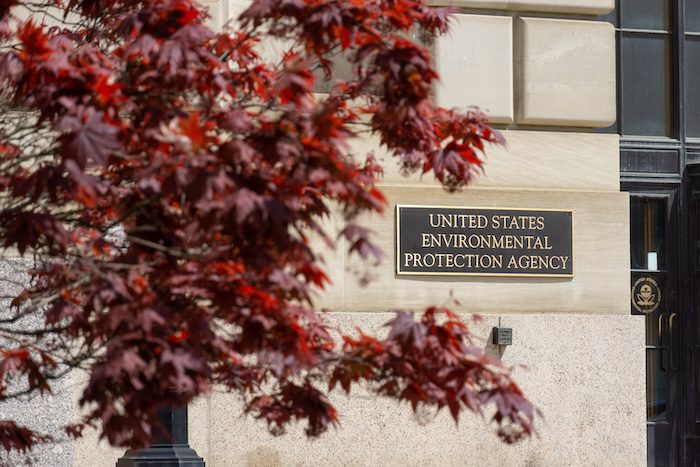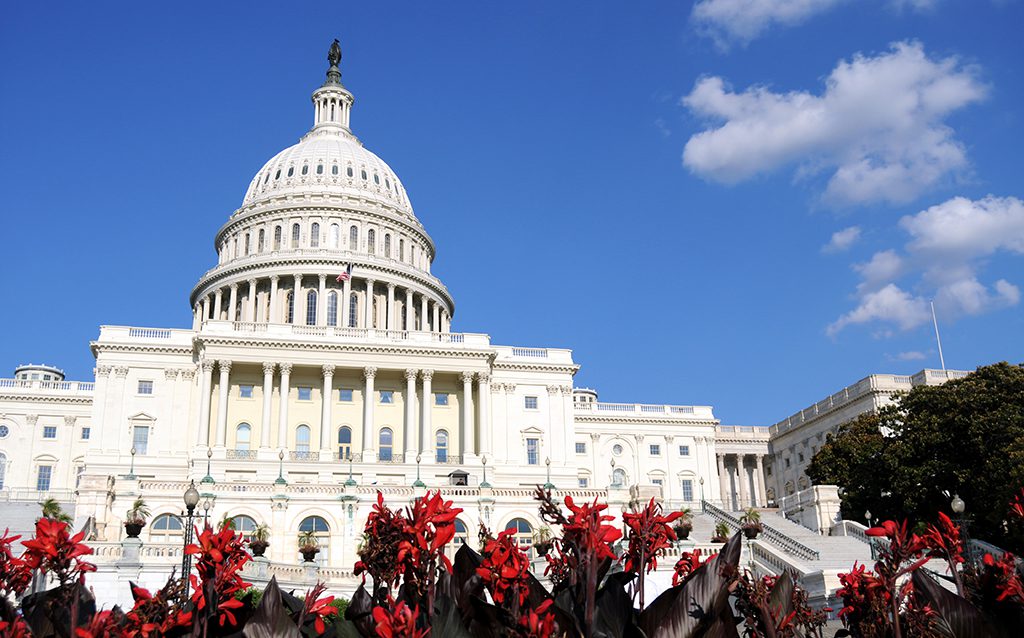
Election officials check voters’ identification during midterm election voting in Arlington, Virginia.
International trade agreements, border security and health care will be key issues facing the 116th Congress after this week’s headline-making midterm elections. Races around the country saw record voter turnout as Democrats regained a majority in the U.S. House of Representatives and Republicans expanded their hold in the U.S. Senate.
The new Congress will face a host of issues that pose challenges for floral industry members — including immigration reform, labor concerns, environmental regulations, transportation and infrastructure repairs and more — but with a divided body and an ongoing investigation into Russian interference in the 2016 presidential election, how much Congress will accomplish legislatively in these areas remains to be seen.
This week, we’ll share an overview of the election results and examine some of the major industry issues senators and representatives are expected to take up.
State of Play: The New House and Senate
Democrats won the House of Representatives for the first time in eight years — results that will “completely upend the relationship between Congress and the Administration,” said Shawn McBurney, the Society of American Florists’ senior director of government relations. He noted that Democrats will now gain the power to control the House calendar, conduct investigations, subpoena executive branch officials and schedule hearings.
“The midterms were in large part a referendum on Trump,” he said. “Now that Democrats control the House, they will attempt to stymie his agenda at every turn.”
One potential challenge for Democrats? With an eye toward the 2020 presidential election, the party’s progressive and center-left factions in the House could spend the next two years battling for the upper hand in shaping the Democratic platform.
Meanwhile, Republicans widened their majority in the Senate (pending final results at press time). That means Majority Leader Mitch McConnel (R-Kentucky) will extend his service into the 116th Congress and Sen. Charles Schumer (D-New York) will remain as the top Democrat.
With a possible margin of 54-46 in the GOP’s favor, Democrats will continue to exert leverage in shaping policy, due to the Republicans’ lack of the 60 votes required by Senate rules to pass legislation.
“Expect the Senate to be the center for policy negotiations between a Democratic House and a Republican White House,” McBurney said.
Industry Issues: Areas to Watch
Key issues SAF will be watching that could affect the floral industry include:
Agriculture/Trade
Among many issues affecting agriculture are consideration of the U.S.-Mexico-Canada Agreement and oversight of the Trump Administration’s negotiations of bilateral free trade agreements with Japan, the United Kingdom, and the European Union.
“As the Trump Administration continues to pressure China to change its trade practices and enforce tariffs on steel and aluminum from all sources, there will be interest in providing additional relief from retaliatory actions that negatively impact agricultural sectors, including tariffs on containers and other products used in the floral industry,” McBurney said.
In addition, whether Congress can reauthorize the farm bill before the end of the year is “one of the most uncertain questions hanging over the lame duck session,” McBurney said. “The results of the midterms make the possibility even more speculative, as Democrats may prefer to delay negotiations until they control the House in the next Congress.”
Health Care
After years of Republicans vowing the repeal the Affordable Care Act (ACA) and then failing to do so when they tried, “Democrats will not only seek to protect it, they may look to expand it,” McBurney said. “In addition, President Trump has issued several executive orders that Democrats perceive as undermining the ACA. It is possible they may attempt to block those actions with their House majority.”
The Environment
The Trump Administration’s approach on energy and environmental policy so far has been one of deregulation and downsizing.
“That should continue over the next two years, with the President touting how the Administration’s policies have fostered job creation and benefited consumers while placing the United States in strong standing as a global energy leader,” McBurney said.
As Democrats prepare to take the reins in the House, they are likely to challenge the Administration at every turn. The new House majority’s agenda will include expanding renewable energy, investing in policies and technology to combat climate change and supporting a carbon tax.
“Democrats have supported imposing a carbon tax for years but have not been able to move it because the Republican majority, especially in the House, is opposed to it,” McBurney said. “Now that they control the House, they may pursue it and work with Democrats in the Senate to develop bipartisan support in that chamber to pass it. “
Labor
“Democrats and organized labor have been frustrated ever since a Democratic-dominated Congress and President Obama failed to enact the Employee Free Choice Act (EFCA), also known as Card Check,” McBurney said. “President Obama imposed many parts of EFCA through executive actions, but many have been undone by court rulings and the Trump Administration. And as far as immigration goes, it will still remain contentious.”
Border security was one of the most contentious issues in the midterm elections and will likely be center stage during the 2020 presidential campaign. In a similar vein, funding for the border wall in the 2019 Homeland Security appropriations bill remains “perhaps the most challenging issue hanging over the lame duck sessions,” McBurney said. “Debate over the border wall will only intensify during the 116th Congress.”
Taxes
Last year’s passage of the 2017 Tax Cuts and Jobs Act and its aftereffects will remain a central focus of the tax world following the 2018 midterms.
“As Treasury finalizes regulations and businesses continue to digest the effects of the bill during its first tax filing season in spring 2019, pressure will mount to legislatively address ambiguous or unexpected results of the bill left unresolved by the regulations,” McBurney said.
Although now under divided control, Congress will not stop legislating on taxes; however, tax policy in the 116th Congress may play a supporting rather than central role in possible efforts to advance infrastructure, health and environmental legislation.
Transportation
Infrastructure legislation provides a possible opportunity for House Democrats to work with President Trump.
“Despite all the talk during the past 24 months about the possibility of major new investments in infrastructure, both from President Trump and Congress, political and fiscal realities have restrained policymakers from fulfilling promises in this area,” McBurney said. “Nevertheless, infrastructure remains an issue with strong bipartisan support and will remain on the short list of top agenda items in the coming year.”
The Administration has touted the benefits of moving forward on infrastructure packages that include forms of public-private partnerships and private investment with tax incentives to fund projects and address deferred maintenance of public assets such as roads, bridges, airports, railroads, and water systems. The new House Democratic majority will likely prioritize oversight of labor agreements, consumer choice and price transparency, and transportation safety for motor carriers.”
Look for more coverage of industry issues and midterm results in the next Week in Review.






